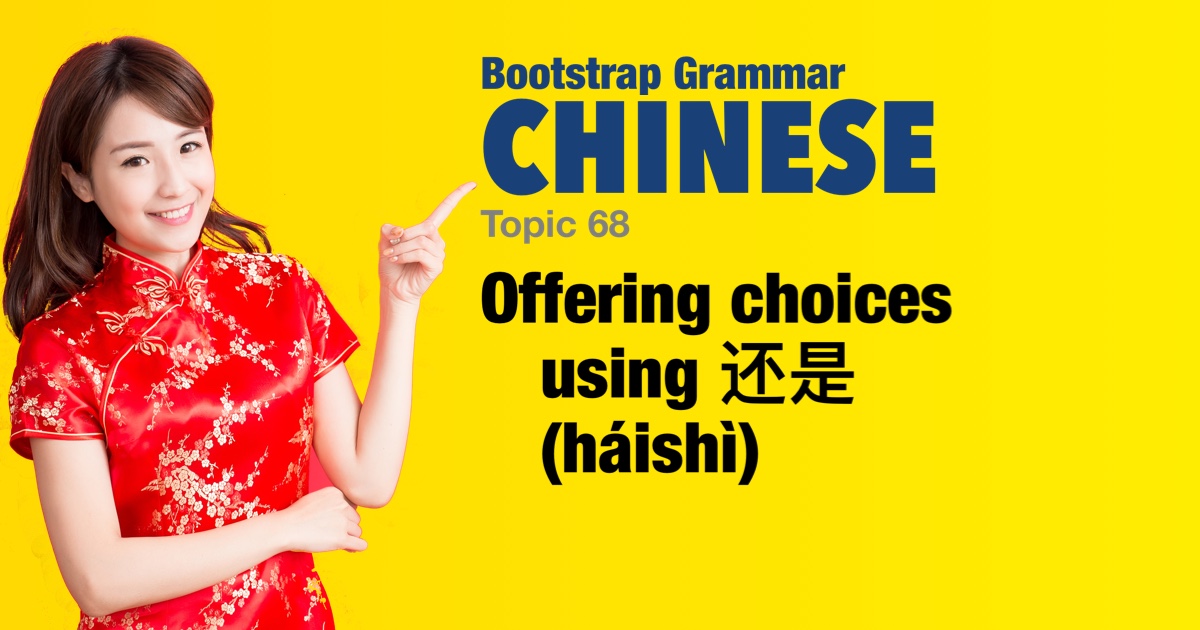Chinese grammar - Offering choices using 还是 (háishì) |
|||
|
|||
In Chinese, when discussing or offering or articulating choices, we should use the connector 还是 (háishì). — In English we don't have a specific word for this - we just use the generic 'or'. |
| Examples: | |
|
你要喝茶还是咖啡?
nǐ yào hē chá háishì kāfēi? Do you want to drink tea or coffee? |
|
|
我们去公园还是图书馆?
wǒmen qù gōngyuán háishì túshūguǎn? Do we go to the park or the library? |
|
|
你想吃米饭还是面条?
nǐ xiǎng chī mǐfàn háishì miàntiáo? Do you want to eat rice or noodles? |
|
|
他喜欢看书还是看电影?
tā xǐhuān kànshū háishì kàn diànyǐng? Does he like to read books or watch movies? |
|
|
她要去商店还是超市?
tā yào qù shāngdiàn háishì chāoshì? Does she want to go to the store or the supermarket? |
|
|
我们在这里吃饭还是在那里吃饭?
wǒmen zài zhèlǐ chīfàn háishì zài nàlǐ chīfàn? Do we eat here or there? |
|
|
你要买水果还是蔬菜?
nǐ yào mǎi shuíguǒ háishì shūcài? Do you want to buy fruit or vegetables? |
|
|
你想看电视还是听音乐?
nǐ xiǎng kàn diànshì háishì tīng yīnyuè? Do you want to watch TV or listen to music? |
|
|
他想去图书馆还是市政厅?
tā xiǎng qù túshūguǎn háishì shìzhèngtīng? Does he want to go to the library or townhall? |
|
 |
|


